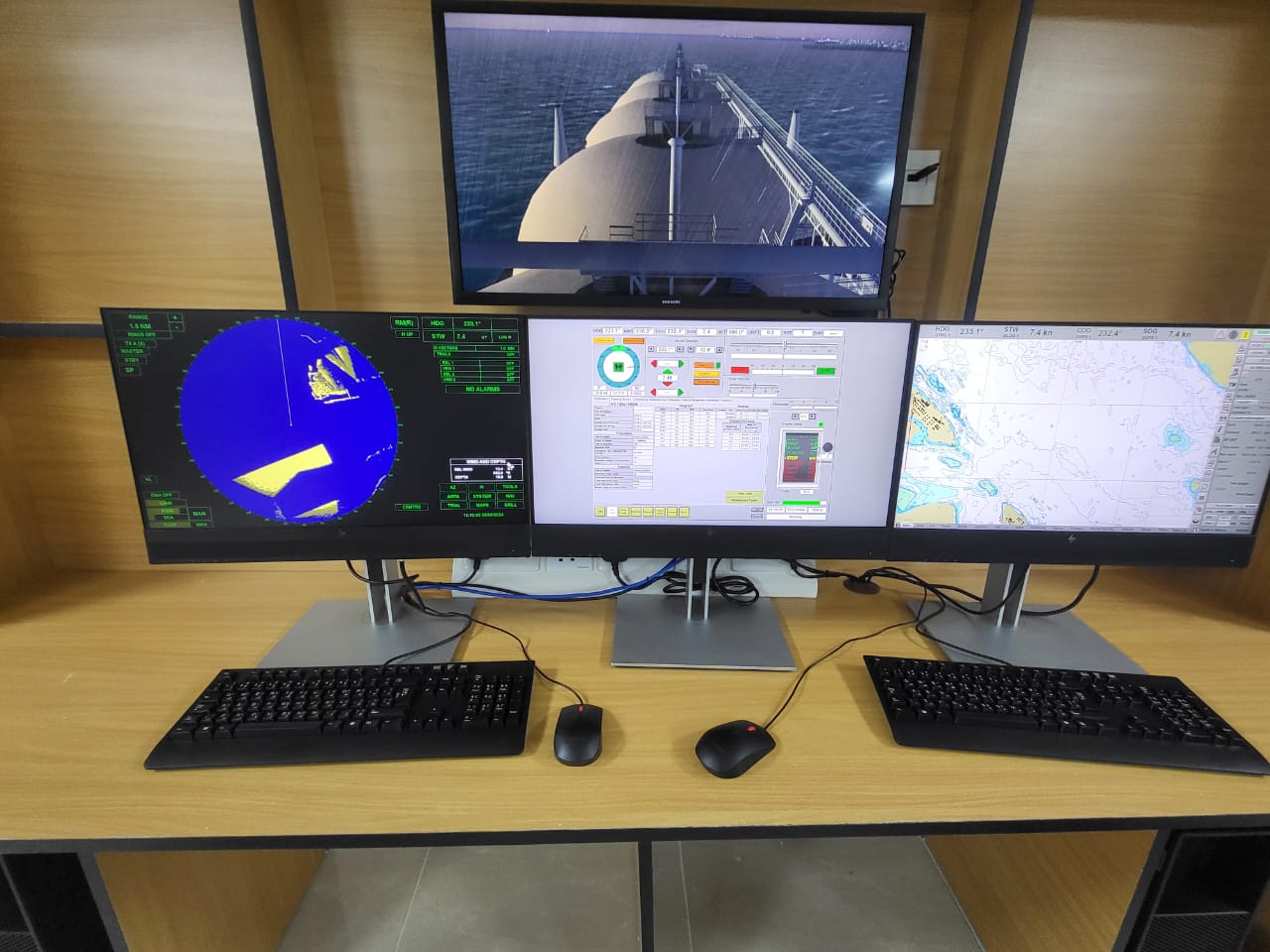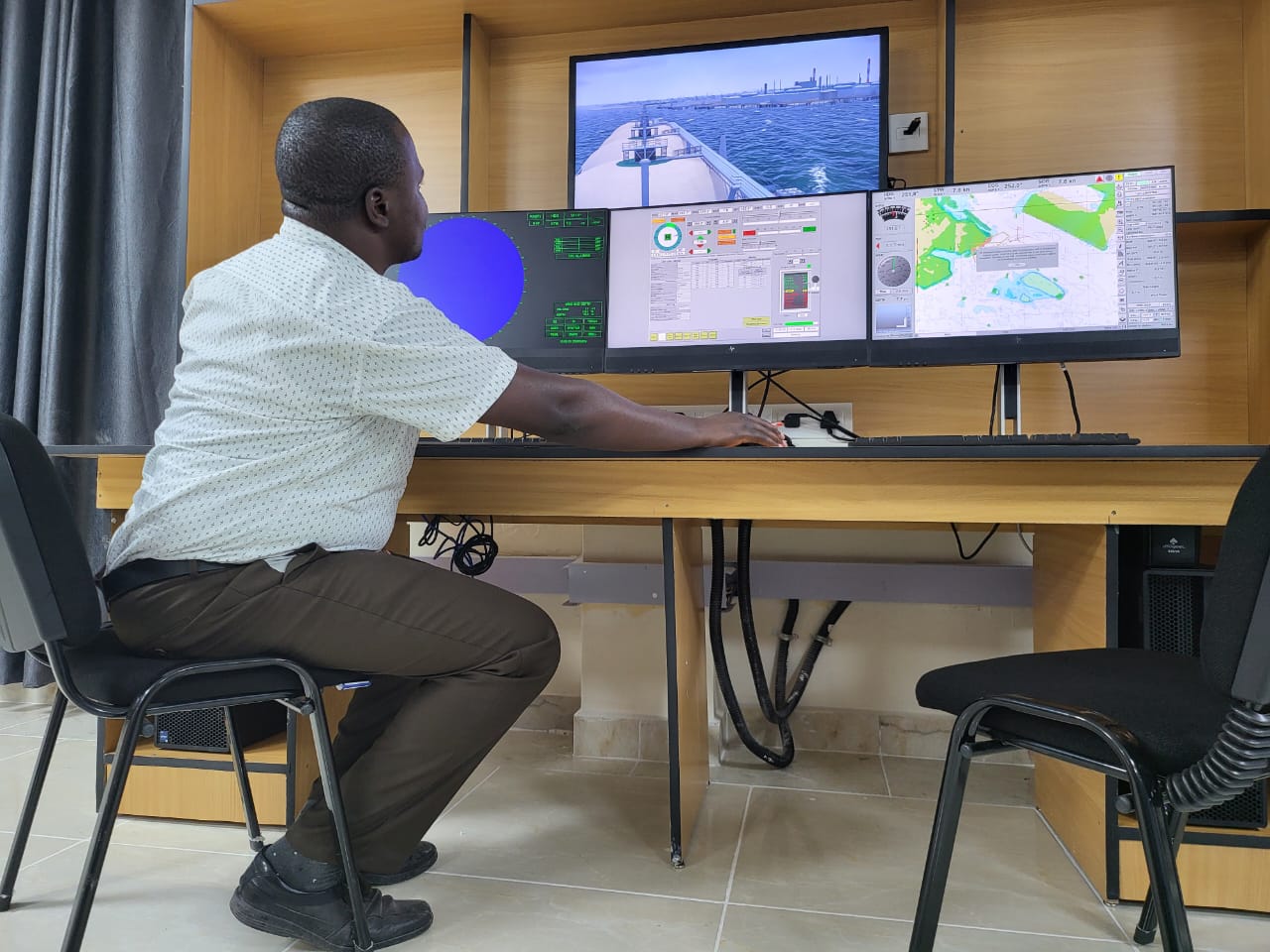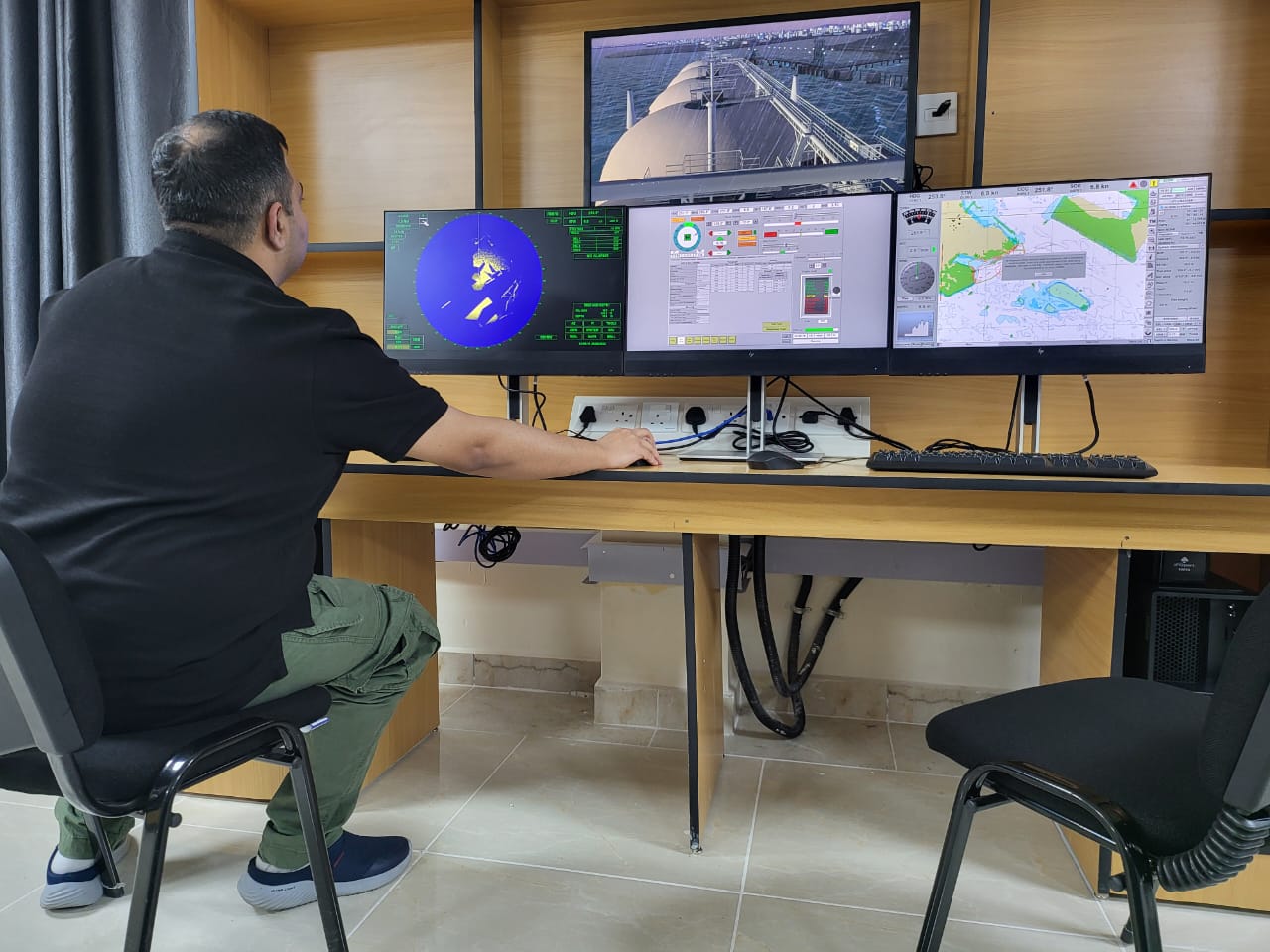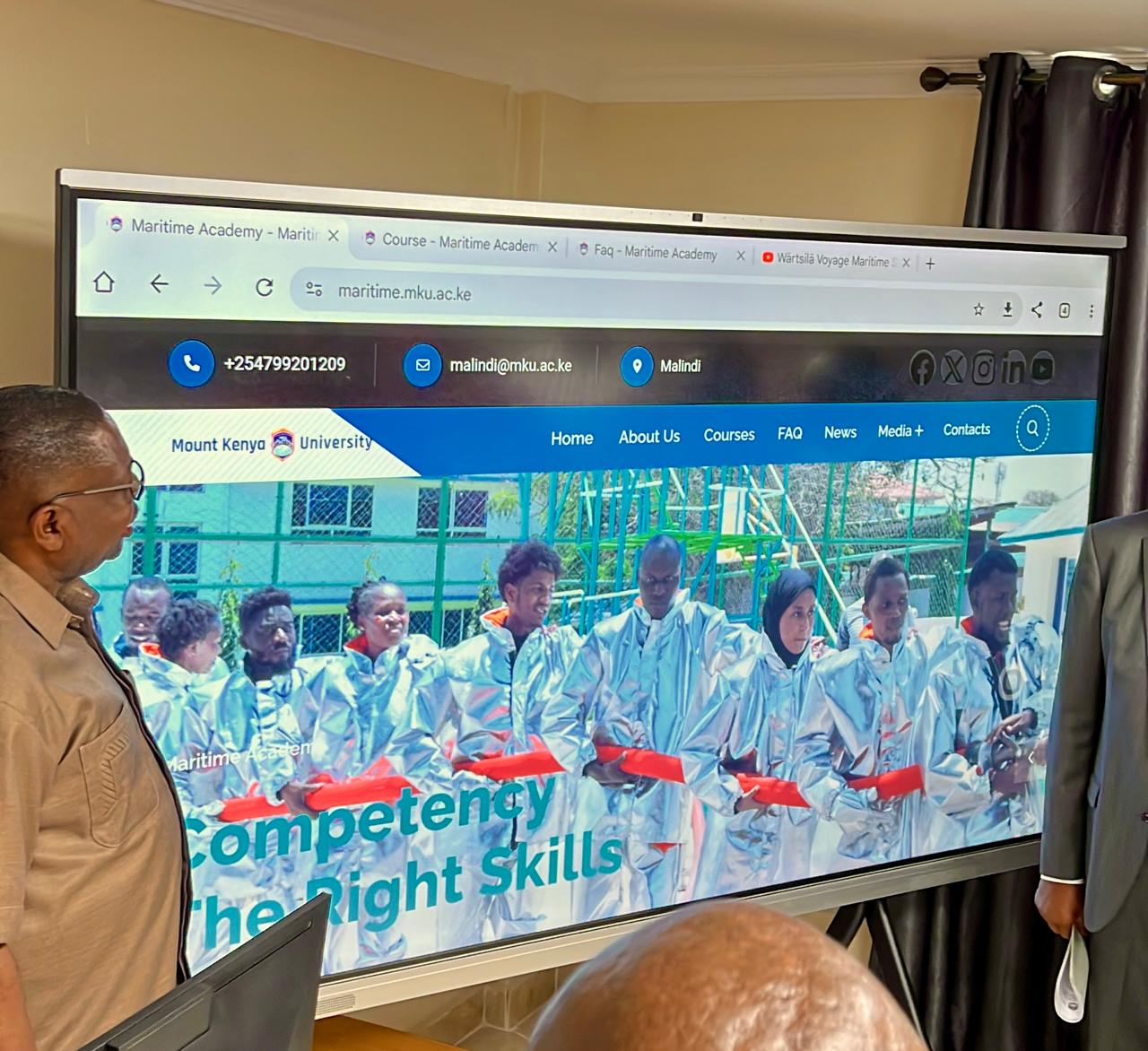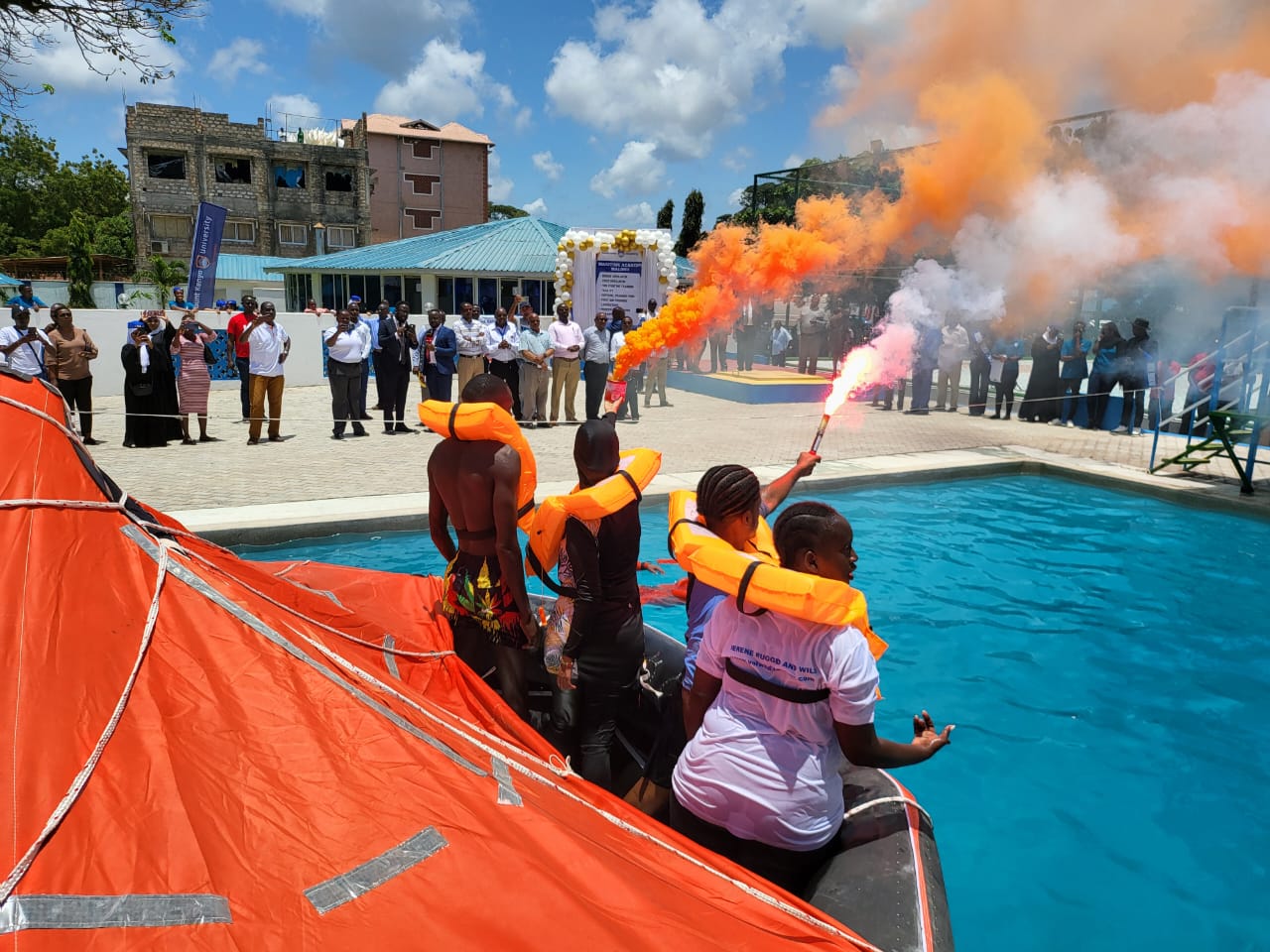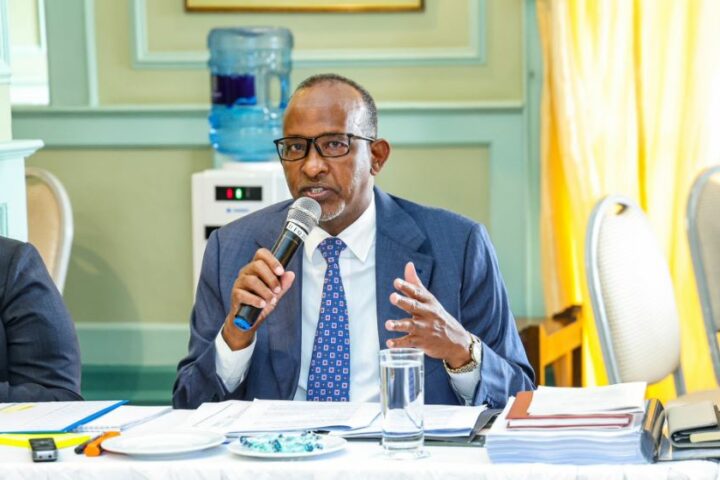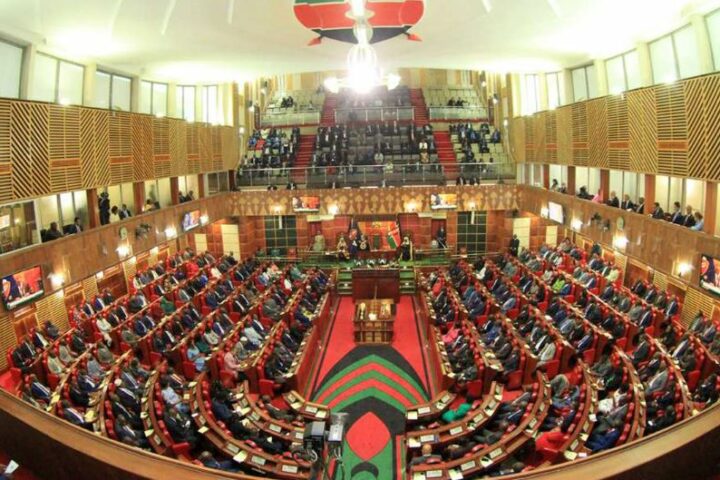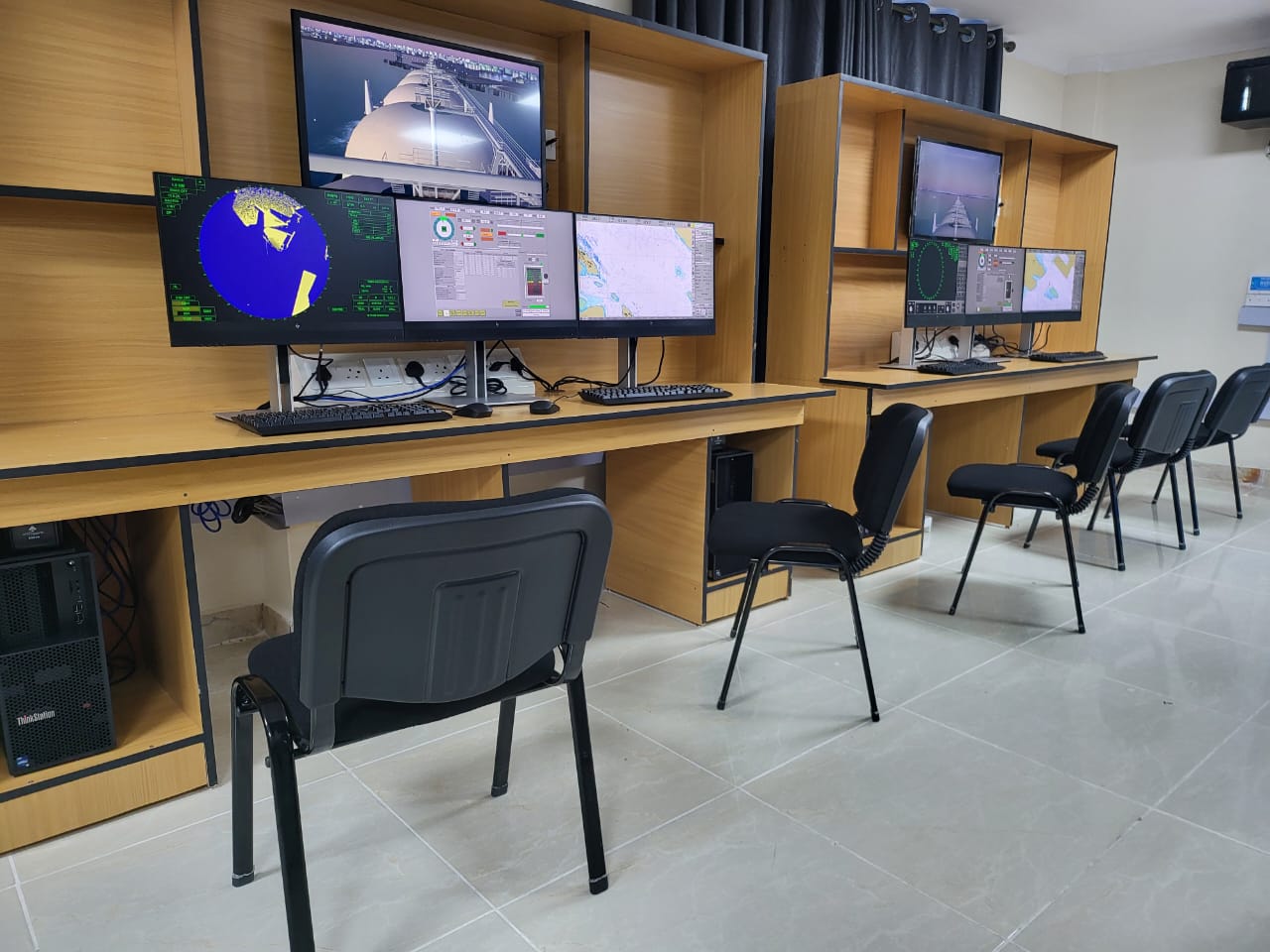 In a move forward for Kenya’s education and maritime sectors, Mount Kenya University (MKU) has established the country’s first private Maritime Academy in Malindi.
In a move forward for Kenya’s education and maritime sectors, Mount Kenya University (MKU) has established the country’s first private Maritime Academy in Malindi.
This new institution aims to address the growing demand for specialized maritime education and support the nation’s expanding Blue Economy initiative.
The academy, located on the Kenyan coast, marks a departure from the traditional government-led approach to maritime training in the country.
It is set to offer a range of programs designed to equip students with skills needed in various aspects of the maritime industry, from navigation and engineering to port management and marine conservation.
A New Chapter in MKU’s Growth Story
Since its founding in 2008, Thika town-based Mount Kenya University has been at the forefront of private higher education in Kenya. Known for its diverse range of programs and emphasis on technology and innovation, MKU has consistently sought to address gaps in the country’s educational landscape.
The establishment of the Maritime Academy in Malindi represents a significant milestone in this journey, venturing into specialized training that is crucial for Kenya’s economic development.
The MKU Maritime Academy stands out as the first non-government-sponsored maritime training institution in Kenya. This development marks a crucial shift in the landscape of maritime education in the country, offering students an alternative to existing government-backed academies.
By entering this specialized field, MKU is set to increase enrollment opportunities and expand the scope of maritime training in Kenya.
Strategic Coastal Location and Contribution to the Blue Economy
Situated in Malindi, a coastal town with deep historical and economic ties to the Indian Ocean, the academy is strategically positioned to take advantage of the area’s natural maritime resources.
The location is ideal for practical maritime training due to its proximity to key shipping lanes, abundant marine resources, and a thriving tourism industry.
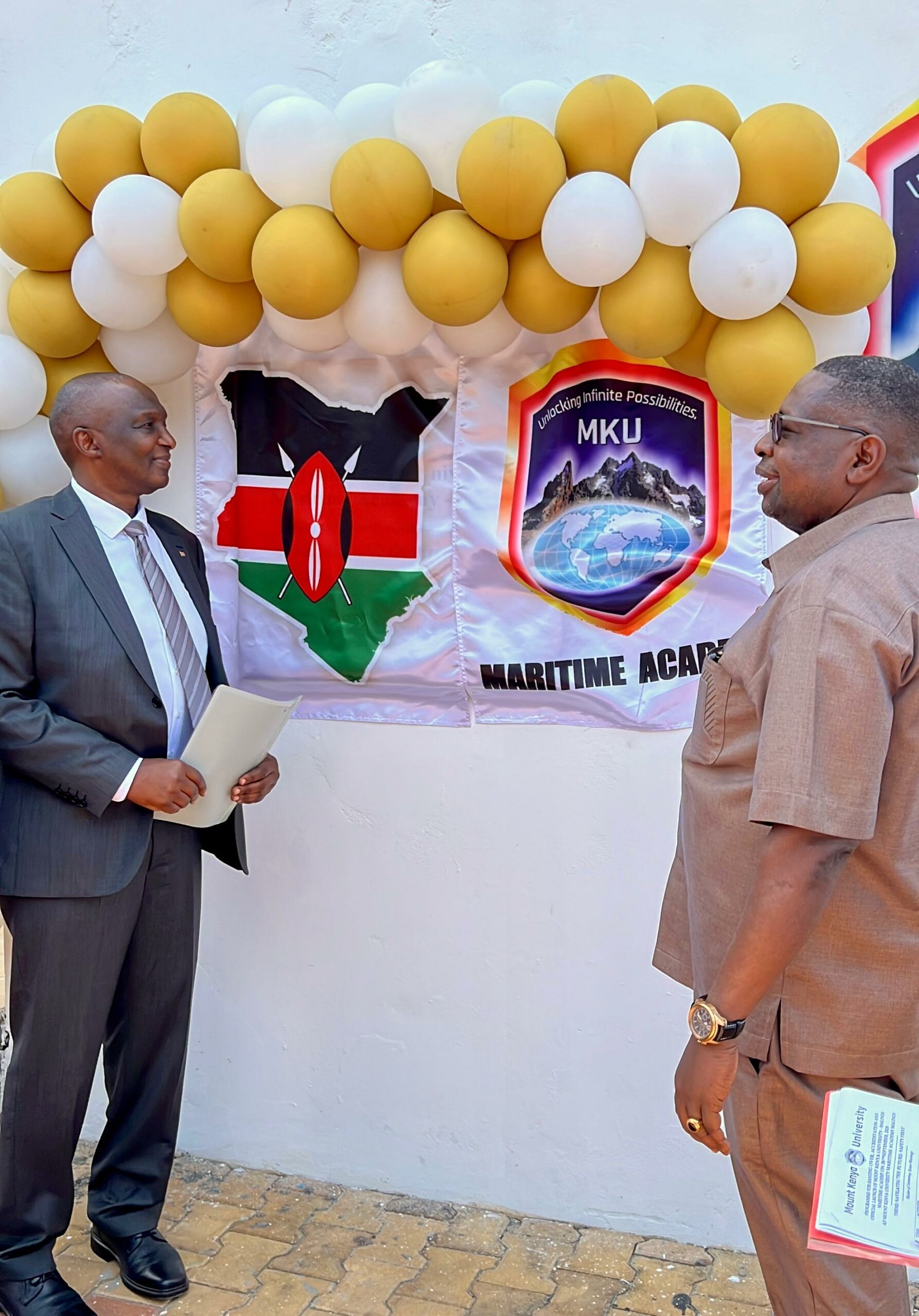
The academy’s curriculum is designed to support this initiative, offering courses in marine navigation, shipbuilding, fishing technology, and marine conservation.
Comprehensive and Industry-Driven Curriculum
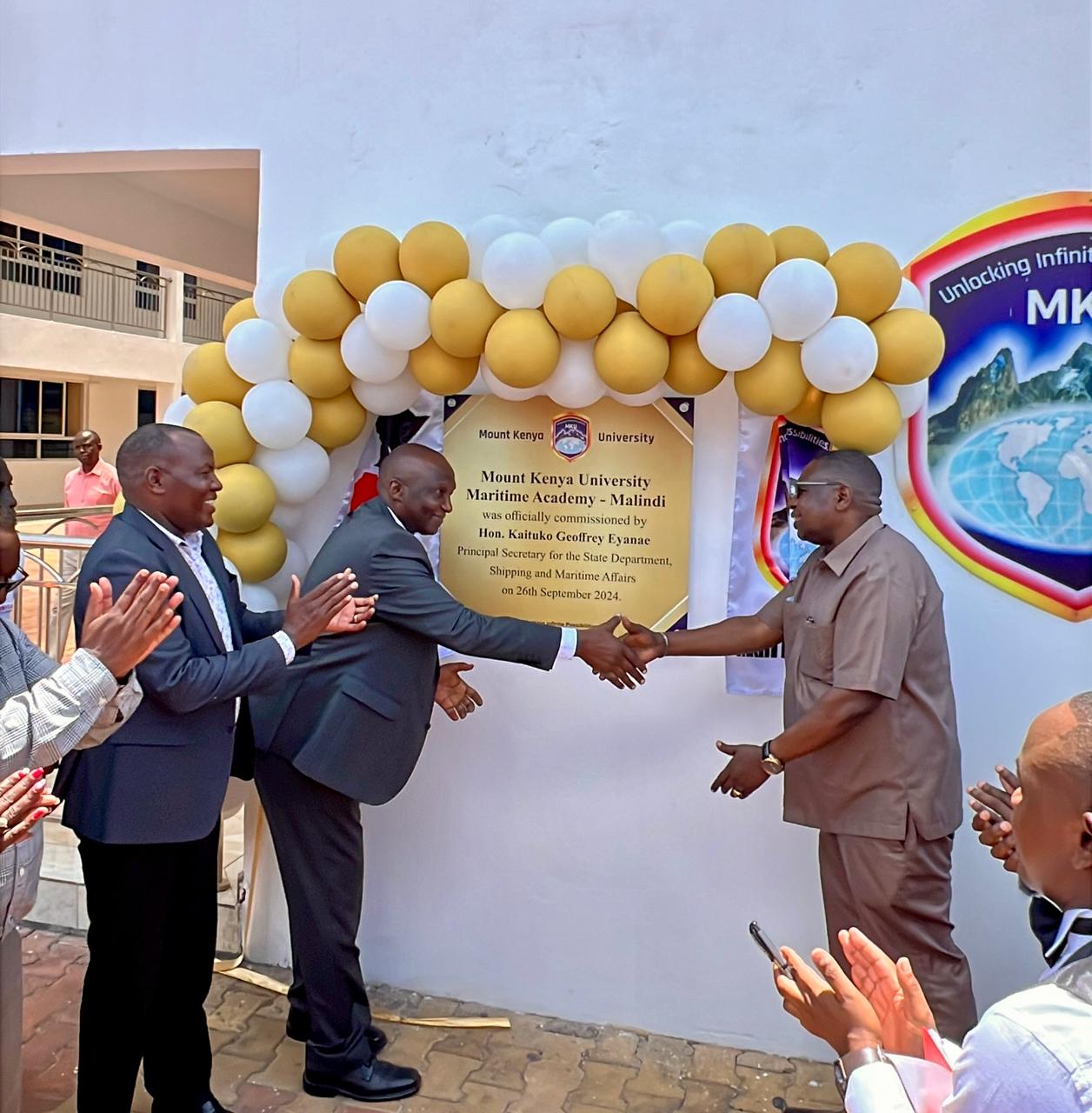
- Maritime Safety
- Marine Engineering
- Port Management
- Oceanography
The academy places a strong emphasis on integrating advanced technology into its training programs, utilizing simulators for navigation and ship handling, as well as modern facilities for marine engineering and port logistics.
Continuing MKU’s tradition of making quality education accessible, the Maritime Academy offers flexible and affordable training options.
The institution provides a range of diplomas, degrees, and short courses, catering to diverse educational levels and professional needs.
Economic and Social Impact
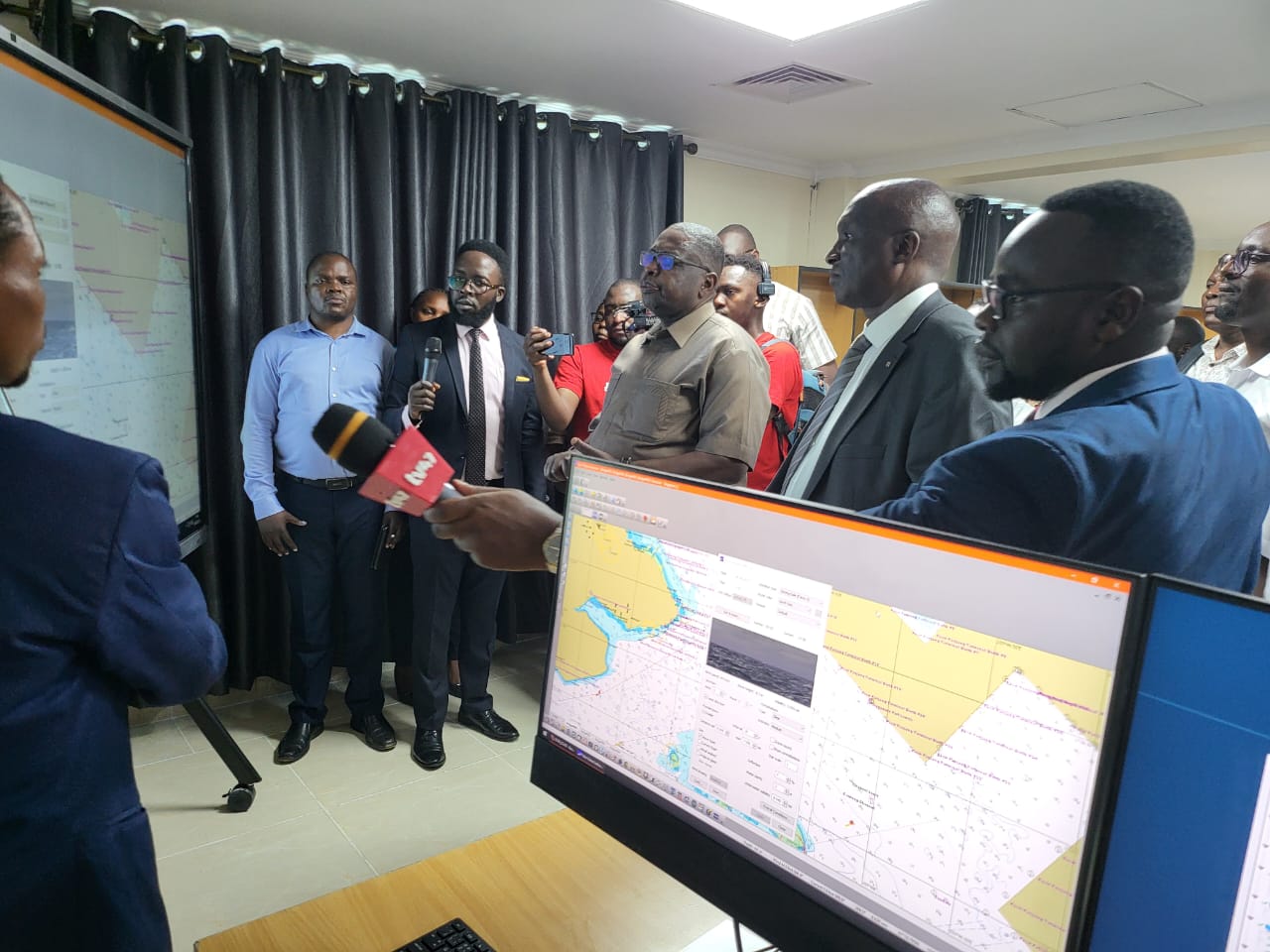
Job Creation and Youth Empowerment
The academy is set to generate numerous employment opportunities, both directly through staffing needs and indirectly by producing graduates ready for maritime sector jobs.
This influx of skilled professionals is anticipated to drive down unemployment rates and foster entrepreneurship in the region.
Revitalization of Malindi’s Economy

The influx of people and resources positions Malindi to become a vibrant maritime education hub, potentially attracting students from across East Africa and beyond.
Focus on Sustainability
In line with global trends and Kenya’s commitment to environmental protection, the academy’s curriculum includes a strong focus on marine conservation and sustainable fishing practices. This approach ensures that economic development goes hand-in-hand with environmental stewardship.
Conclusion: A New Frontier in Kenya’s Maritime Education
The launch of the MKU Maritime Academy represents a significant expansion of Mount Kenya University’s educational offerings and a major development in Kenya’s maritime sector.
By providing world-class, affordable training in Malindi, MKU is not only creating new opportunities for students but also contributing significantly to the socio-economic development of coastal communities.
As the first private maritime academy in Kenya, this institution is poised to play a pivotal role in shaping the future of the country’s maritime industry and supporting the growth of the Blue Economy.
